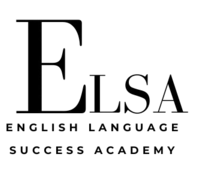Preparing for the Test of English as a Foreign Language (TOEFL) can be a daunting task. With four sections testing different language skills, it’s crucial to have a well-structured study plan that addresses all aspects of the exam. This article will guide you through creating a personalized TOEFL study plan, helping you maximize your preparation time and achieve your target score.
Assessing Your Current English Proficiency
Before diving into your TOEFL preparation, it’s essential to understand where you stand. Here’s how to assess your current English level:
- Take a diagnostic TOEFL test: This will give you a baseline score and help identify your strengths and weaknesses.
- Evaluate your skills in each section: Reading, Listening, Speaking, and Writing.
- Consider your English usage in daily life: How comfortable are you with academic English?
Setting Realistic Goals
Based on your initial assessment, set clear, achievable goals:
- Determine your target TOEFL score: Research the requirements of your target universities or organizations.
- Break down your goal by section: Set specific targets for Reading, Listening, Speaking, and Writing.
- Consider your timeframe: How much time do you have before the test date?
Creating Your TOEFL Study Timeline
A well-structured timeline is key to effective preparation. Here’s a sample 3-month study plan:
Month 1: Building Foundations
- Week 1-2: Familiarize yourself with the TOEFL format and question types.
- Week 3-4: Focus on improving your weakest areas identified in the diagnostic test.
Month 2: Intensive Skill Building
- Week 5-6: Deep dive into Reading and Listening strategies.
- Week 7-8: Concentrate on Speaking and Writing tasks.
Month 3: Practice and Refinement
- Week 9-10: Take full-length practice tests weekly.
- Week 11-12: Review and refine your strategies, focusing on time management.
Allocating Time for Each Section
Tailor your study time based on your strengths and weaknesses:
- Weakest section: Allocate 40% of your study time.
- Second weakest: 30% of your time.
- Stronger sections: 15% each.
Adjust this distribution as you progress and your skills improve.
Recommended Study Materials and Resources
Quality resources are crucial for effective preparation:
- Official TOEFL iBT Tests (Educational Testing Service): These provide the most accurate representation of the actual test.
- TOEFL Preparation Books: Choose comprehensive guides from reputable publishers.
- Online Resources:
- ETS TOEFL website: For official information and free practice questions.
- Language learning apps: For vocabulary and grammar practice.
- Academic podcasts and lectures: To improve listening skills.
The Importance of Consistent Practice
Consistency is key in language learning. Here’s how to maintain regular practice:
- Set a daily study schedule: Aim for 1-2 hours on weekdays and 3-4 hours on weekends.
- Use spaced repetition: Review material at increasing intervals to improve retention.
- Incorporate English into your daily life: Watch English news, read English articles, or find an English-speaking conversation partner.
Immersion Techniques for TOEFL Success
Immersing yourself in English can significantly boost your skills:
- Change your device language settings to English.
- Watch academic lectures and TED Talks in English.
- Read academic journals and newspapers in English.
- Participate in English language forums or discussion groups online.
Maintaining Motivation Throughout Your Preparation
Staying motivated during a long preparation period can be challenging. Try these strategies:
- Set small, achievable weekly goals.
- Reward yourself for meeting these goals.
- Join a TOEFL study group for mutual support and motivation.
- Visualize your success and remind yourself of your reasons for taking the TOEFL.
Managing Stress During TOEFL Preparation
Preparing for such an important test can be stressful. Here are some stress management techniques:
- Practice mindfulness or meditation to stay focused and calm.
- Maintain a healthy lifestyle with regular exercise and a balanced diet.
- Ensure you’re getting enough sleep, especially in the weeks leading up to the test.
- Take short breaks during study sessions to avoid burnout.
Fine-tuning Your Plan
As you progress through your study plan, regularly assess your improvement:
- Take a practice test every 2-3 weeks to track your progress.
- Adjust your study plan based on your improving scores and changing needs.
- As the test date approaches, focus more on full-length practice tests and time management.
The Week Before the Test
In the final week before your TOEFL:
- Review your notes and key strategies for each section.
- Take one last full-length practice test.
- Familiarize yourself with the test center location and requirements.
- Relax and maintain your regular sleep schedule.
Remember, preparing for the TOEFL is a marathon, not a sprint. With a well-structured study plan, consistent practice, and the right resources, you can approach the test with confidence and achieve your desired score.
Elsa Says:
Creating a comprehensive TOEFL study plan is crucial for success. Start by assessing your current English proficiency and setting realistic goals. Develop a structured timeline that allocates more time to your weaker areas while maintaining practice in all sections. Utilize a mix of official TOEFL resources and immersive English experiences in your daily life. Consistency is key – stick to your study schedule and regularly evaluate your progress. Don’t forget to incorporate stress management techniques and maintain a healthy lifestyle throughout your preparation. With dedication and a well-executed study plan, you can confidently approach the TOEFL and achieve the score you need for your academic or professional aspirations.





